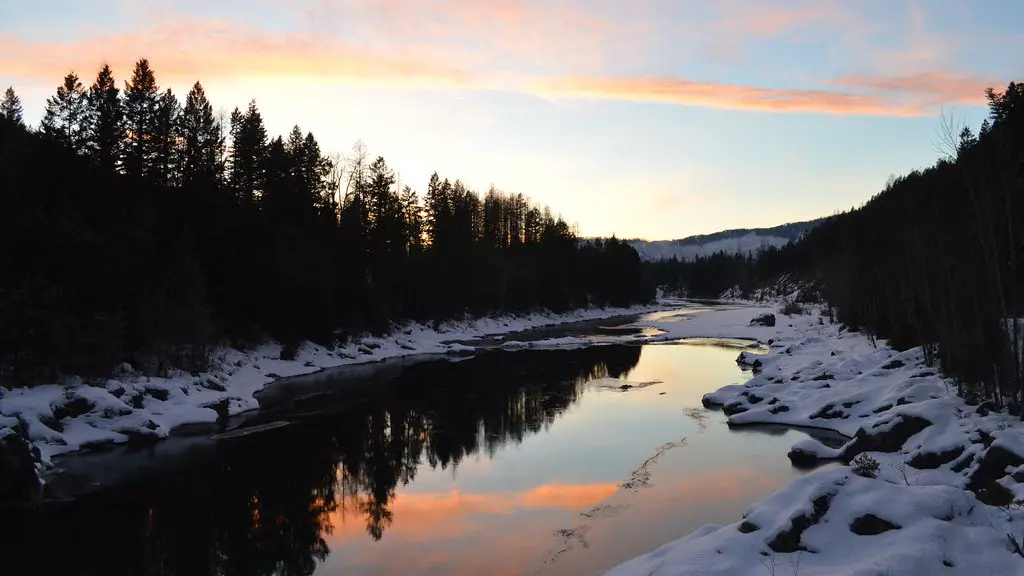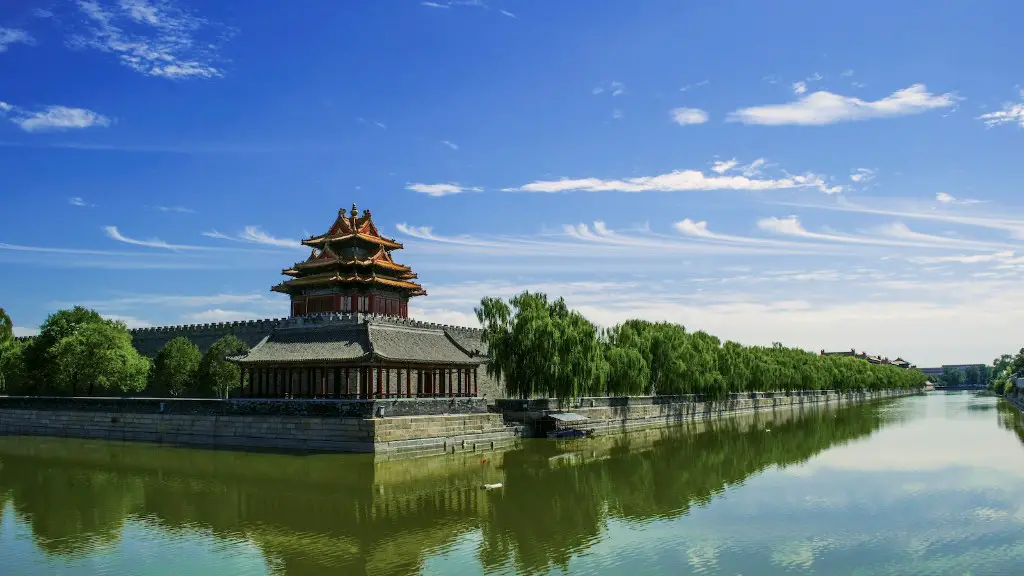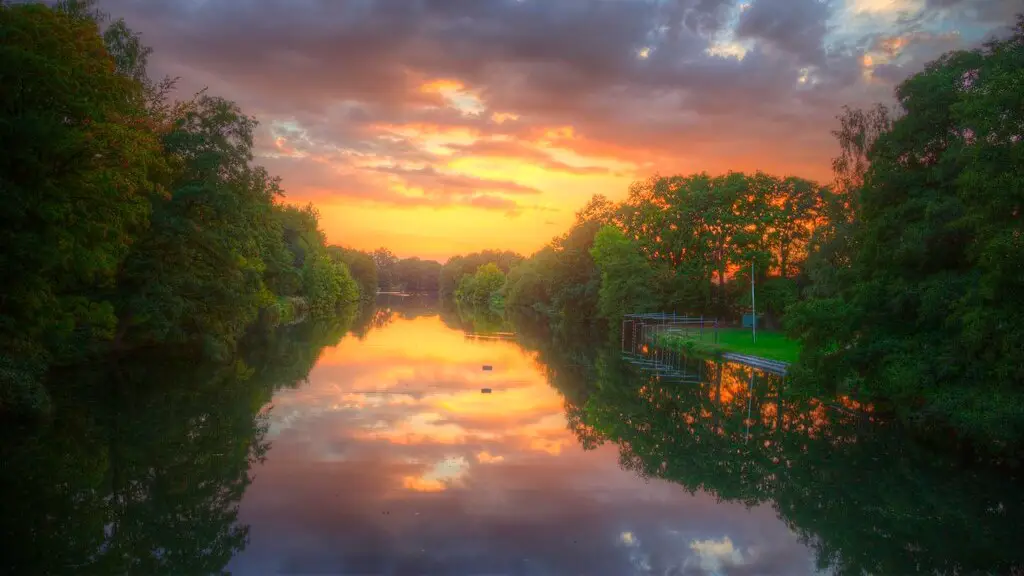The mighty Mississippi River is a lifeline to North American industry, culture, and wildlife. Spanning ten states and more than three thousand miles, the Mississippi River is the largest river system in the United States and one of the largest river systems in the world. Along its vast length, the Mississippi River is host to a range of varied ecosystems, each one home to its own set of flora and fauna. From bigmouth bass to beavers and ospreys, the river is a veritable playground for wildlife – and an excellent place to observe and photograph it. Here, we’ll explore what you can find in the Mississippi River and the importance of this incredible natural resource.
A variety of species
The Mississippi River is home to more than two hundred species of fish and more than sixty species of freshwater mussels. Among the most well-known inhabitants of the river are bigmouth bass, crappies, bluegills, catfish, and river carpsuckers. But you’ll also find bowfin, walleye, yellow perch, carp, and much more. In addition to fish, you’ll also find a variety of birds and mammals living in or around the Mississippi River. These include bald eagles, ospreys, ducks, geese, muskrats, beavers, and mink. The riverside is also home to a variety of reptiles like the American alligator, snapping turtle, and five-lined skink.
Important eco-systems
The Mississippi River is much more than just a home for fish and wildlife; it is an important ecosystem that supports many of the biological dynamics in North America. One of the largest and most diverse wetland areas in the United States is the Mississippi River Delta, which is made up of more than eleven thousand acres of wetlands, swamps, and coastal estuaries. Here, you can find the largest wetland habitat in the US for bald eagles, as well as one of the largest remaining freshwater marshes in the world. This important ecosystem is used by migrating birds as a refueling and resting stop, and provides a crucial refuge for nesting waterfowl and amphibians.
Benefits to human life
The Mississippi River has had an important role in human civilization since the first humans began inhabiting the area more than fifteen thousand years ago. In more recent times, it has been used as a source of drinking water, transportation, food, and other needs. But the river also provides countless benefits to housing and infrastructure, agricultural irrigation, flood control, and physical offerings such as recreational activities, education, and job opportunities. Fishing, boating, and wildlife viewing are just a few of the activities that are popular in the Mississippi River.
Threats to the Mississippi River
Man-made threats such as pollutants, chemicals, and runoff from agricultural and industrial activities pose significant problems for the Mississippi River’s sustainability. Over-fishing and commercial shipping activities also endanger the delicate balance of species in the river. But perhaps the most pressing concern is the potential impacts of climate change. Rising temperatures, sea level rise, and droughts can all have a detrimental effect on the Mississippi River’s health and future. In order to protect and preserve this important ecosystem, it is of paramount importance that we begin to take steps to mitigate these threats and invest in environmentally responsible practices.
Conservation Tips
In order to protect and conserve the Mississippi River, there are a few simple ways you can make a difference. You can start by joining an organization that is dedicated to preserving this important ecosystem. You can also support practical projects that are working to sustainably manage the river’s resources and habitats. Finally, you can take part in local events, such as river clean ups and educational programs, to help raise awareness and protect this vital resource.
Sustainable Boating Practices
Boating and fishing are two of the most popular activities on the Mississippi River, and the river is home to many small businesses, communities, and organizations that depend on these activities for their livelihoods. To maintain the health of the Mississippi River, it’s important to practice sustainable boating practices. These include using only eco-friendly fuels, abiding by all local ordinances and laws, and properly disposing of waste and oil. Additionally, respecting wildlife habitats, adhering to speed limits, and maintaining respectful noise and boat traffic levels are all important considerations when boating on the river.
Tourism on the Mississippi River
The Mississippi River is an excellent destination for tourism, offering a range of activities and adventures. From river cruises and fishing trips to national parks, camping, and other outdoor recreational opportunities, the river is a great place to enjoy and explore. There are also numerous museums and historical sites along the riverside, chronicling the importance of the Mississippi River to cultures throughout history. Millions of people every year flock to the Mississippi River for its beauty, culture, and abundance of activities, and this number is only expected to increase in the coming years.
The Mississippi River is an essential part of the US economy, not least through its shipping activities. From chemical and agricultural products to raw materials and manufactured goods, the Mississippi River is one of the most productive waterways in North America. Thousands of barges and commercial vessels use the river every day and the waterway also serves as a major port for large cargo vessels. The river’s transport infrastructure is operated and managed by companies such as the Lower Mississippi River Amalgamated Association, providing critical services to the US economy.
Miscellaneous Economic Benefits
The Mississippi River is hugely important to the North American economy, providing a range of miscellaneous benefits to industry, agriculture, recreational activities, and more. Farming, trade and manufacturing rely on the river for water and other resources, while the local fishing industry provides jobs and sustenance to countless people who depend on the river for their livelihoods. Additionally, the beauty of the river and its wildlife, as well as the cultural heritage associated with its many cities, towns, and villages, make the Mississippi River an important part of the US tourism market.


